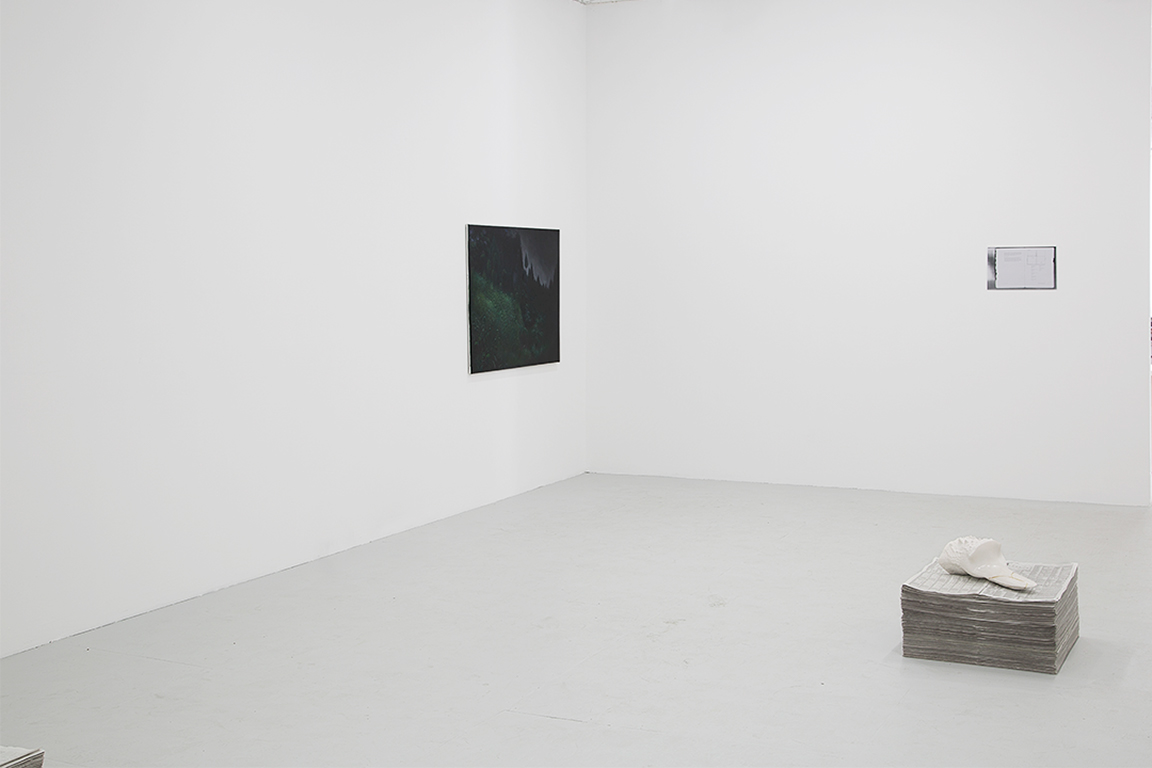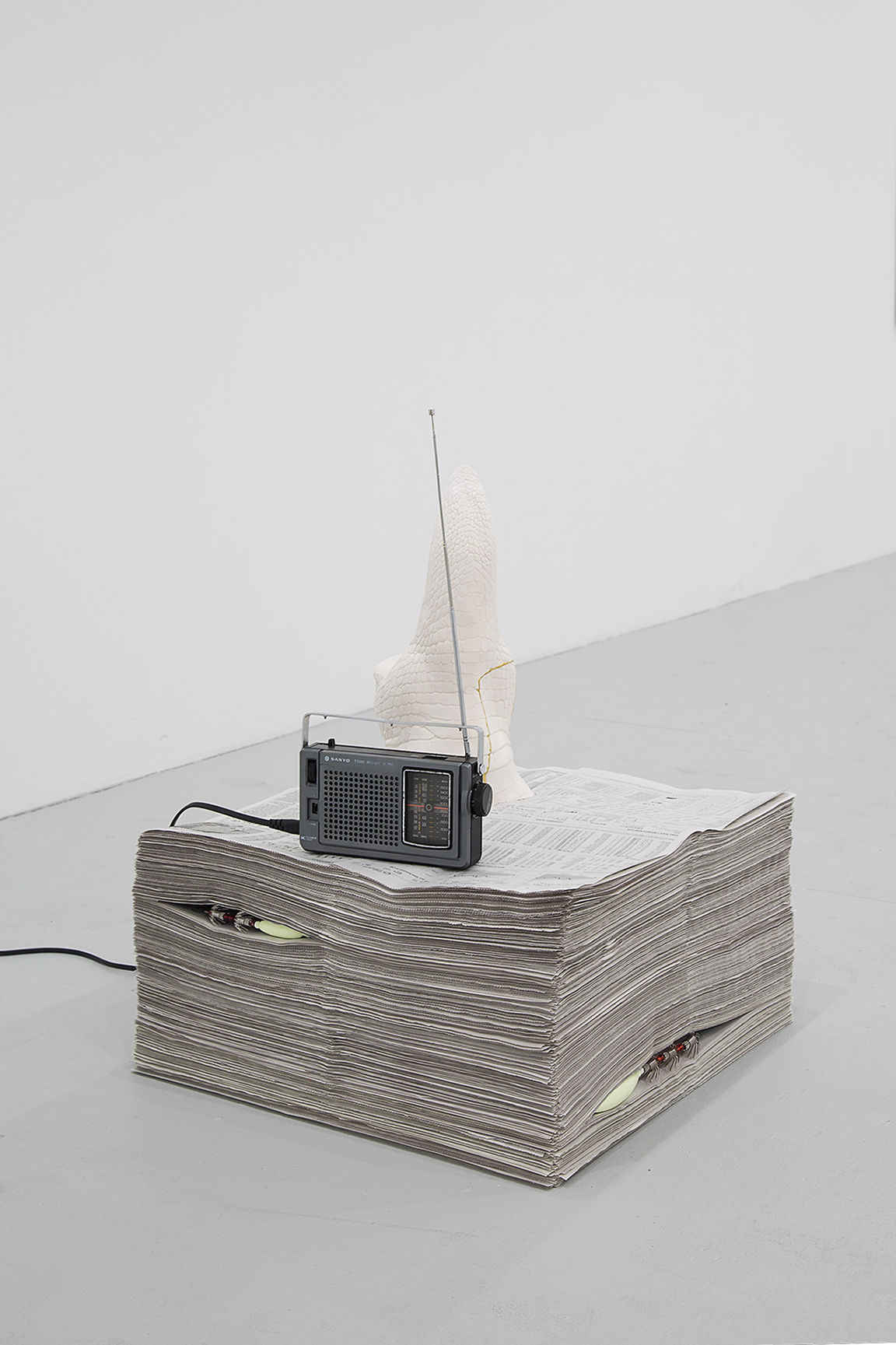"...In Jean Cocteau’s Orpheus, the poetry of the underworld emanates from a car radio. The film’s protagonist leans close to the dashboard, waiting for the next mysterious dispatch. Stucky also has us bending down to listen to a radio, only there isn’t a message coming through; his emits only an atmosphere of not-quite-empty fuzz. One radio appears in the exhibition; a second, we’re told, is located elsewhere in the city. The two devices are tuned to the same signal, but they are also linked across time and across an even greater distance. These handsets were produced by the same company—only one was made in Japan, the other in China twenty years later. They, too, are part of a story, much larger than the modest objects and stretching beyond the bounds of a single mind. These works leave us on a psychic riverbank, where we might glimpse the dream forms of signs like so many alligators. Or we track the unmoored narratives like ghost ships into an indifferent sea, where their afterlife may be as vital as any living beings we know. There we try to salvage them, or we sink them, casting the elusive things back into the deep..."
-Karsten Lund, Vital Fictions (Lying In Wait to Return), 2015
-Karsten Lund, Vital Fictions (Lying In Wait to Return), 2015



















